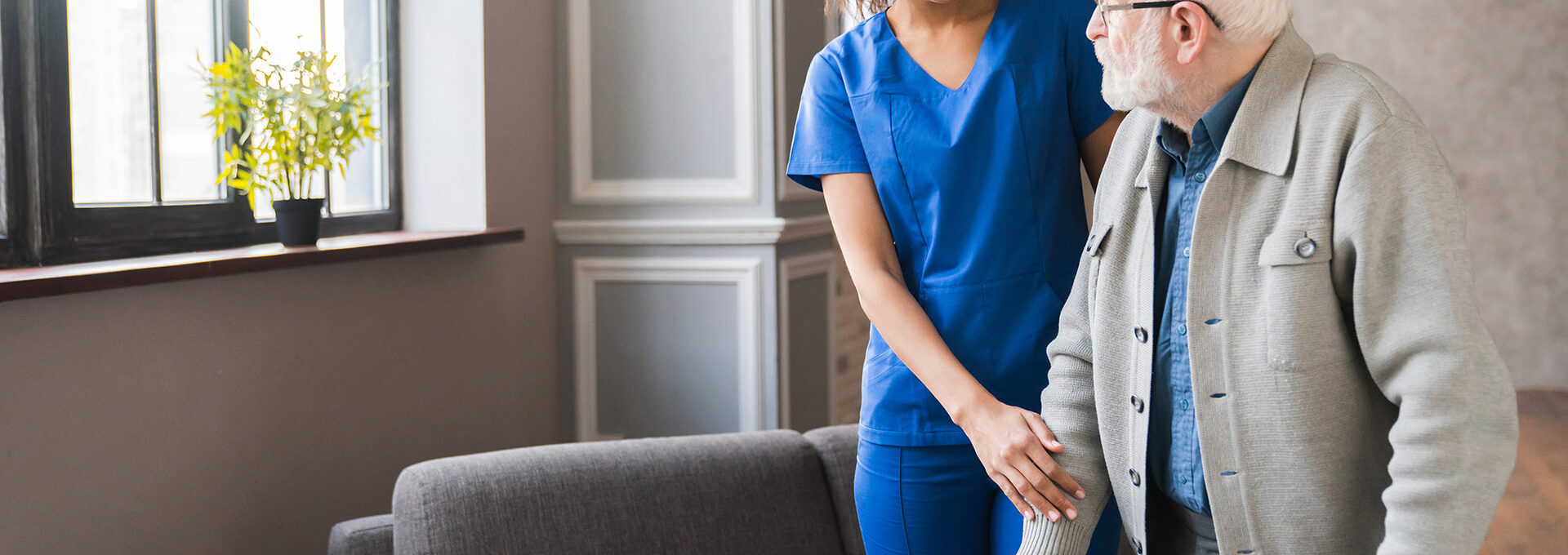
Evaluate my degree of dependence
For people who have a physical and or / psychological dependence following a loss of autonomy, they can resort to financial assistance : the APA, the Personalised Allowance for Autonomy. But it all dependends on the degree of dependence. To determine this, we use an evaluation matrix called the AGGIR (Autonomie Gerontologie Groupe Iso Ressources). It's during a visit to the applicant's home that a medio-social team from the Department's social services will determnie the level of autonomy.
What does the matrix evaluate?
The AGGIR matrix was developped by the doctors of the French Society of Gerontology and the Social Security doctors, aided by computer scientists. They observed whether the applicant was still able to carry activities unaided or whether it was necessary to have the help of nursing staff.
To establish the level of dependence we will observe every day activities being carried out and apply the 10 "discriminant variable" that make up the AGGIR Grid.
- Coherence: how a person converses, behaves in a logical way,
- Orientation: finding one's bearings in time and space,
- Personal hygiene: if the person washes properly,
- Dressing: if the adult manages to dress and undress unaided
- Food: serving and eating prepared meals,
- Elimination: if the applicant is incontinent (urinary, anal),
- Transfer: getting up, going to bed, sitting down,
- Indoor movement: with or without a cane, or with a walker or a wheelchair,
- Travelling outside: in the street, if they need help to get around,
- Remote communication: if the person knows how to use a telephone, a bell.
Find out more
The AGGIR Grid is also made up of 7 other variables called "illustrative variables". They make it possible to assess activities specific to independent living.
- Management (managing own affairs, budget, property)
- Cooking (preparing and serving meals)
- Housekeeping (carry out all the work)
- Transport (take and/or other individual or collective means of transport),
- Purchases (direct acquisition or by correspondence),
- Treatment monitoring (knowing how to comply with the doctor's prescription)
- Free time activity (whether the person has sports, cultural, social, leisure or hobbies).
The different variables are scrupulously analysed by a doctor to assess the applicant. There are three available options:
- If the person usually does an activity spontaneously on their own and correctly (A)
- Whether they usually do it naturally or incorrectly (B)
- Or if they don't (C).
The notion "alone" implies spontaneity on the part of the person. It excludes inducement or stimulation from someone else. These variables allow a very clear distinction between individuals according to three modalities: strong loss of autonomy, partial loss of autonomy and no loss of autonomy.
The AGGIR Grid is not a questionnaire. It aides the evaluating doctor with the assessment of the dependencies of the person concerned.
What are the results?
The AGGIR Grid is processed by computer in order to evaluate the variables. From these variables, we are able to identify six groups called ise-resource groups (GIR). They determine the level of dependency and autonomy of the applicant.
- GIR 1 includes the elderly confined to bed or chair, whose mental functions are severely impaired and require an indispensable and ongoing assisstance
- GIR 2 are the elderly confined to bed or chair, whose intellectual functions are not totally impaired and whose condition requires support for most activities of daily life. This group also covers the elderly whose mental functions are impaired, but who have retained their ability to move around;
- GIR 3 brings together the elderly who have retained their mental autonomy and partial motor skills autonomy, but who need daily and several times a day to be helped for their bodily autonomy;
- GIR 4 includes the elderly who are unable to get up on their own but once they are up, can move around inside their home. They sometimes need help with washing and dressing. This group includes the elderly who do not have motor skills problems but who need help with physical activities and with meals;
- GIR 5 includes elderly people who only need occasional help with washing, preparing meals and cleaning;
- GIR 6 encompasses the elderly who haven't lost their autonomy for the everyday essential tasks.
To benefit from APA, the Personalised Autonomy Allowance, the applicant must be in groups 1 to 4.
> See the AGGIR Grid.
